Finally, Walter Hill
In which Norm finally, FINALLY writes about Via Vision's very nice Walter Hill box.
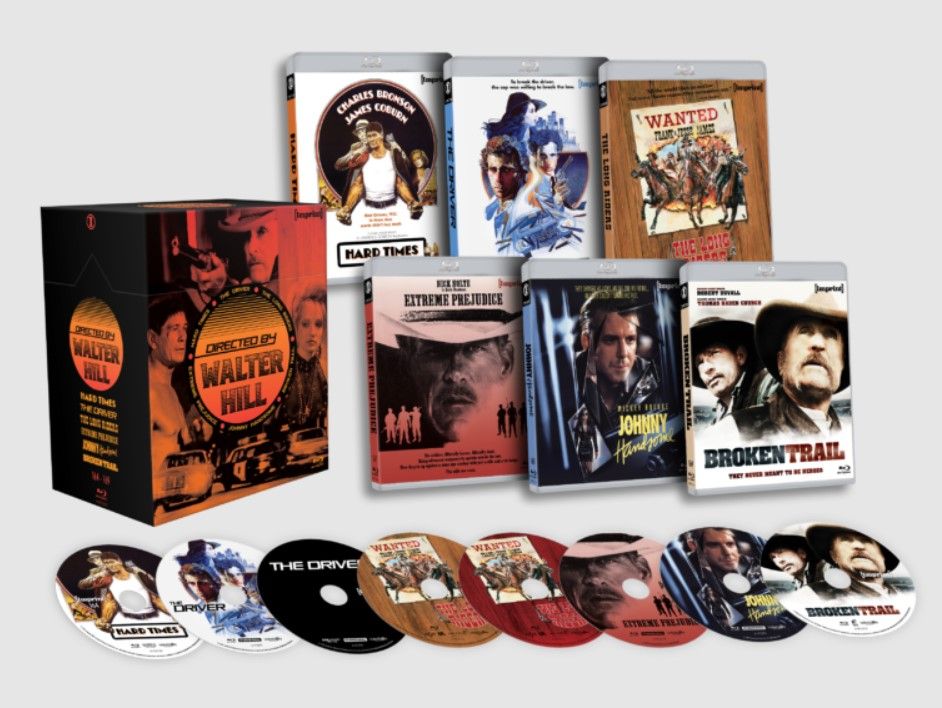
I’ve been promising you all a look into Via Vision’s Directed by Walter Hill boxed set for weeks now, and hopefully you’re as happy to be reading this as I am to finally be delivering it.
I’ve admired Hill’s work for decades, ever since discovering him in the glory days of VHS, when The Warriors and 48 HRS and Streets of Fire were everywhere; by the time I was old enough to get into R-rated movies, he was into the second phase of his career, moving away from studio productions to the scrappier mid-budget pulp of Extreme Prejudice and Red Heat and Johnny Handsome.
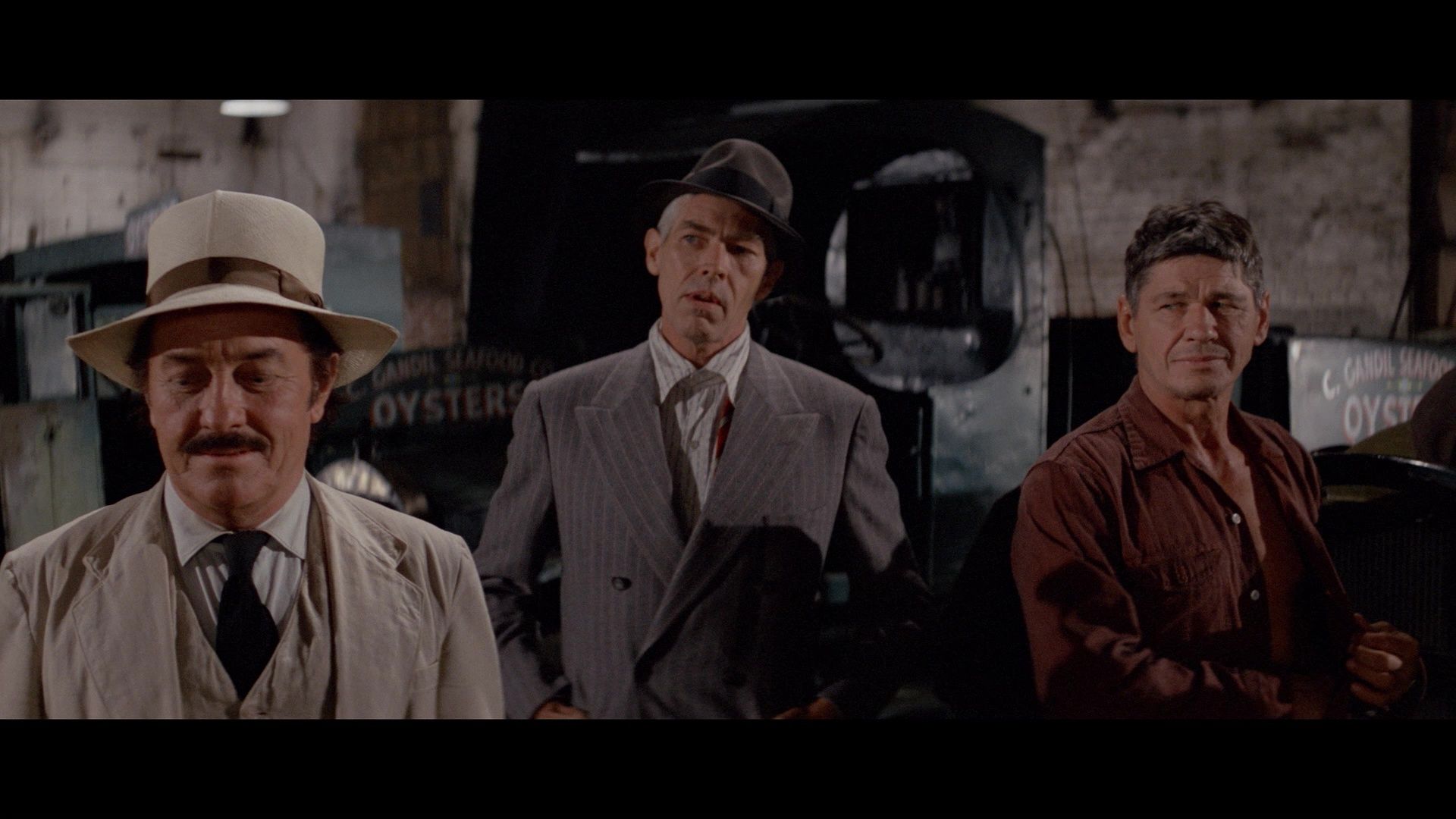
The quality might vary but there’d always be an essential quality I’d recognize: Hill was fascinated by the presentations of masculinity and competence in American cinema, and the way the two elements are invariably interwoven and contrasted in genre stories. Think of the way the Warriors desperately try to maintain their cool as they’re hunted through the entirety of New York City in that film – echoed in the unprepared National Guardsmen forced to actually be the badasses they’d been cosplaying in Southern Comfort – or the way Jim Belushi keeps undercutting Arnold Schwarzenegger’s stone-faced lawman in Red Heat. Or the way Mickey Rourke simply looking like himself in Johnny Handsome allows his character to stalk the people who know him best. Hill always found a way to pit his protagonists against themselves, or their image of themselves, in addition whatever external threats they faced.
The five features (and one TV miniseries) included in this Imprint box set serve as a sampler of his career, reaching from Hard Times in 1975 to Broken Trail in 2006. We also get The Driver, The Long Riders, Extreme Prejudice and Johnny Handsome – all of which have been in and out of circulation over the years, and most of which have been recently reissued and restored on various U.S. and UK labels. What Via Vision does is round them all up in a very nice box, region-free and with some exclusive new extras here and there, suitable for any Hill superfan and well aware that most of us will have picked up some of these titles – but not all of them, and maybe not the newer editions.
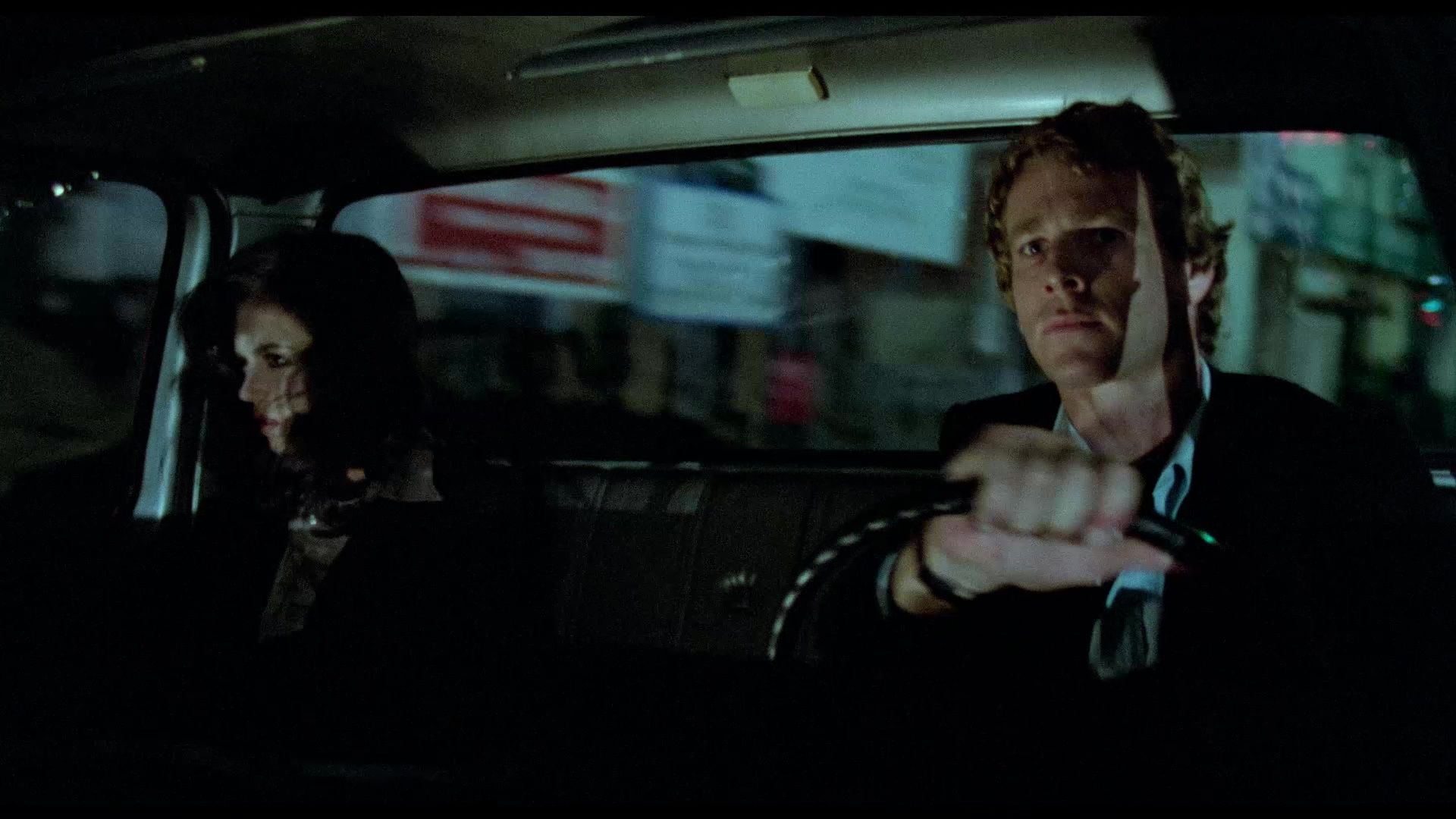
(Speaking of which, if you prefer the US theatrical cut of The Driver you’ll want to hold on to that disc; this edition is built on StudioCanal’s recent remastered release, which features the longer international cut of the film on separate 4K and Blu-ray discs; both formats are included here as well, which was a nice surprise when the specs for the set were announced.)
How are the movies? Pretty damn good. The simple, straight-ahead narrative of Hard Times – which stars Charles Bronson, James Coburn and Strother Martin as three no-accounts in ’30s New Orleans who team up to enter the underground cage-fighting game – feels like a statement of purpose, with world-weary antiheroes trading insults and observations like they’ve walked out of an Elmore Leonard novel.
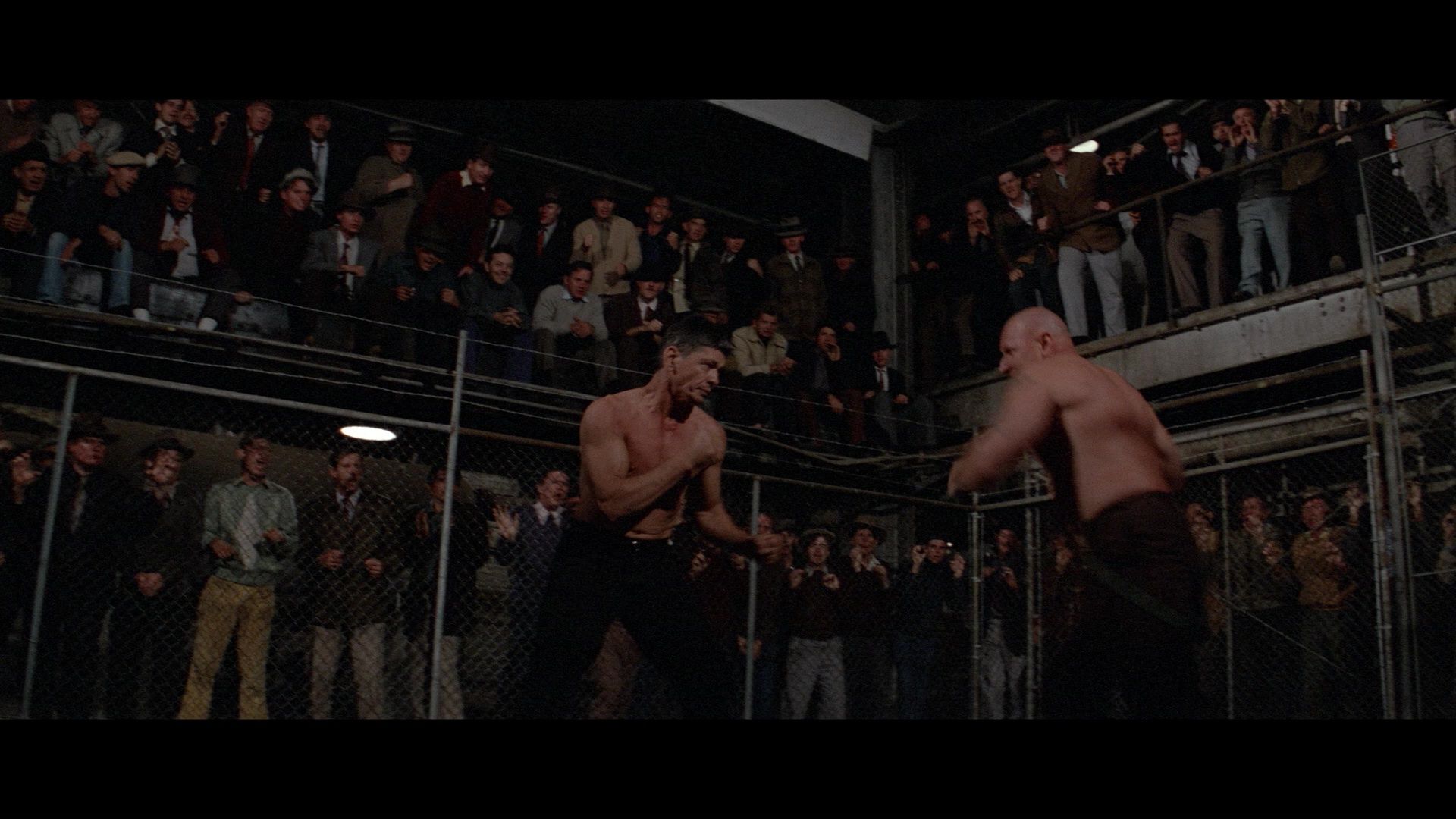
The set pieces are brutal but also somehow frank in their mechanics; punches hurt, bodies break, pain and exhaustion accumulate. Bronson gets through it with a pissy sort of stamina that’s mirrored in Coburn’s wolfish grin and Martin’s weary honesty; these guys are all on their last shot, and they know it, and they’re using that knowledge to push past the pain. We get it.
Hill’s next film was The Driver, an even more stripped-down genre study: It’s so efficient that the characters don’t even have names. We just know them by what they do: There’s the Driver (Ryan O’Neal), who drives getaway cars for mid-level thieves pulling jobs in Los Angeles; the Detective (Bruce Dern), who’s determined to catch him in the hopes of breaking a crime ring; the Connection (Ronee Blakely), who handles the Driver’s assignments and the Player (Isabelle Adjani), a woman caught between the Driver and the Detective. The Detective calls the Driver “Cowboy” sometimes. That’s not his name either.
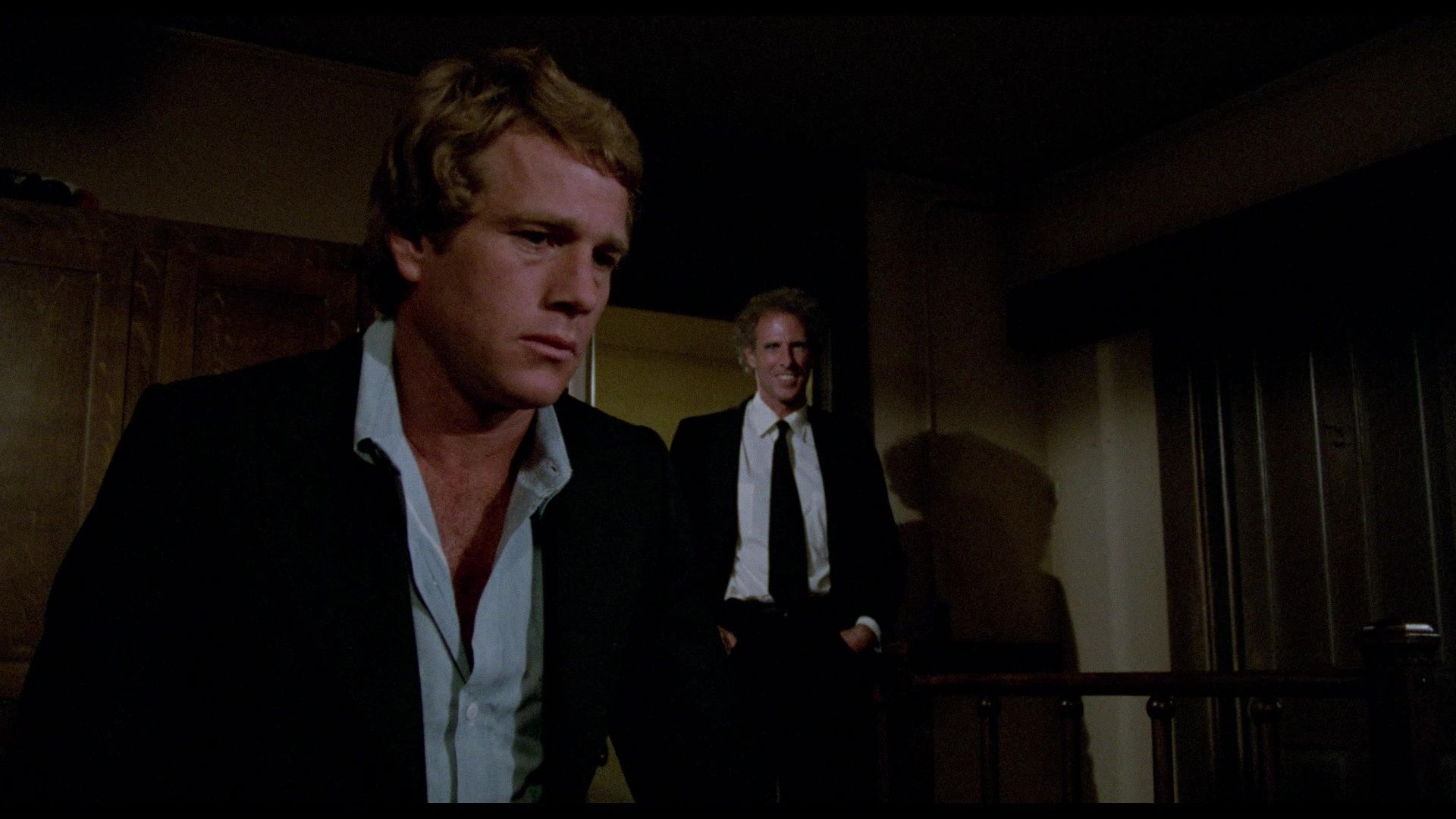
Almost five decades on, The Driver feels like an ur-text for neo-noir as a whole: Hill’s plot is an obvious influence on Edgar Wright’s Baby Driver, but Quentin Tarantino clearly swallowed the film’s gangster-cool aesthetic whole along with its you-are-what-you-do approach to character. (I’m betting Michael Mann watched this a few times as well, as The Driver basically predicts his whole deal.) If you’ve never seen it before, the 4K restoration is an excellent way to discover it; the longer cut gives the story a little more breathing room, and the new master is gorgeous. Extra credit to whoever decided not to remix the monaural soundtrack into stereo or Atmos; presented here in LPCM, the soundscape has an unshowy proficiency that suits both the characters and their vehicles – it’s just looking to do the best job with the tools available in the moment. Which, I think, sums up Hill’s vision nicely.
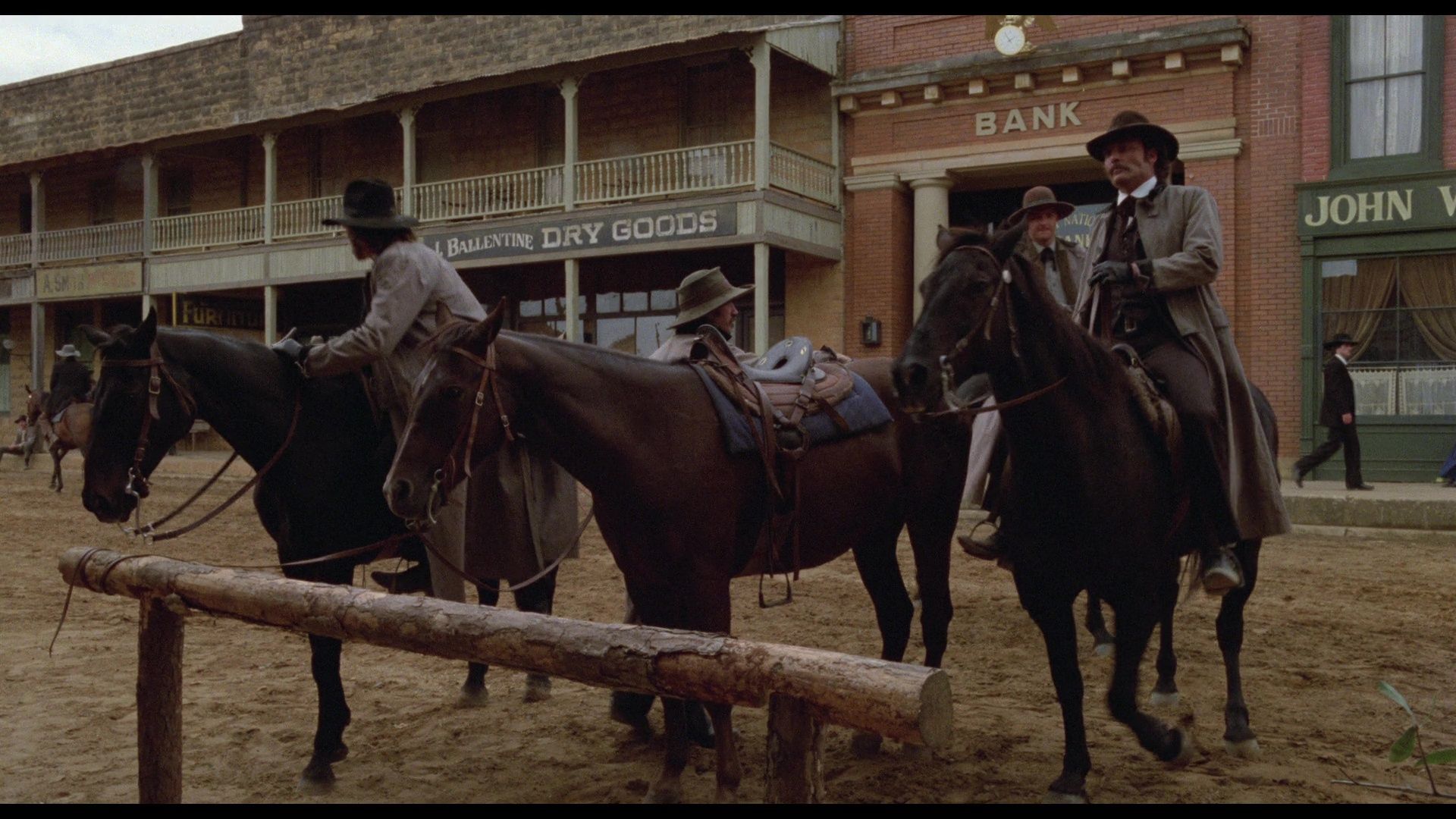
His ambition (and his toolkit) scaled up somewhat for his next picture, The Long Riders, a meat-and-potatoes Western with a novel twist: The outlaw brothers of the James-Younger gang are played by actual siblings. Stacy and James Keach are Frank and Jesse James, David, Keith and Robert Carradine are Cole, Jim and Bob Younger, Dennis and Randy Quaid are Ed and Clell Miller and Christopher and Nicholas Guest play Charley and Robert Ford – and we all know what the coward Robert ultimately did. A long-gestating idea of the Keach brothers, it works surprisingly well, both as visual shorthand and for the sense that everybody’s having a great time playing cowboy. What’s fascinating now, of course, is watching the likes of Robert Carradine, Dennis Quaid and Christopher Guest as baby-faced versions of themselves – and the sight of Guest in a Western, giving a proper dramatic performance, now carries a certain cognitive dissonance. He’s good, though. Give it a chance.
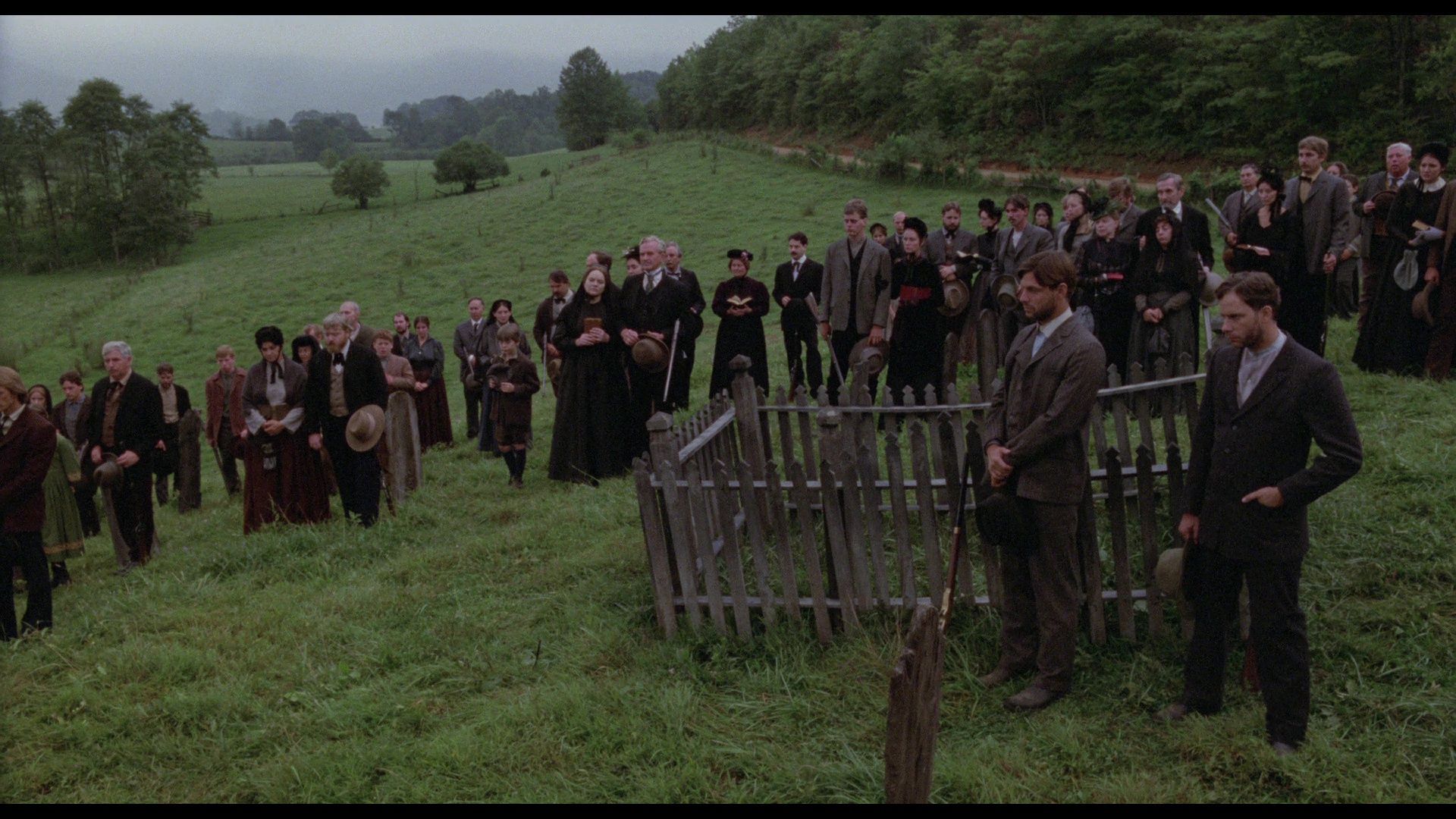
This title is pretty much a straight port of the two-disc special edition released by Kino Lorber a few years back, with an excellent hour-long documentary, a separate dissection of the Northfield raid set piece, and nearly two hours of retrospective interviews with the Keach brothers, Keith and Robert Carradine, Randy Quaid, Nicholas Guest and Hill himself. Composer Ry Cooder and producer Tim Zinnemann also get their own featurettes, and Hill is given a chance to discuss the influence of Sam Peckinpah on the Western genre. The chatty commentary Kino Lorber commissioned from critics Howard S. Berger, Steve Mitchell, and Nathaniel Thompson is here as well, along with a new track from author and historian Toby Roan. And the feature is presented in the same excellent 4K remaster that graced Kino Lorber’s edition – cleaning up the image without prettifying the movie’s grimy, gritty world. I’d say Hill should have made more Westerns, but so many of his movies feel like them even when they’re technically noirs or thrillers.
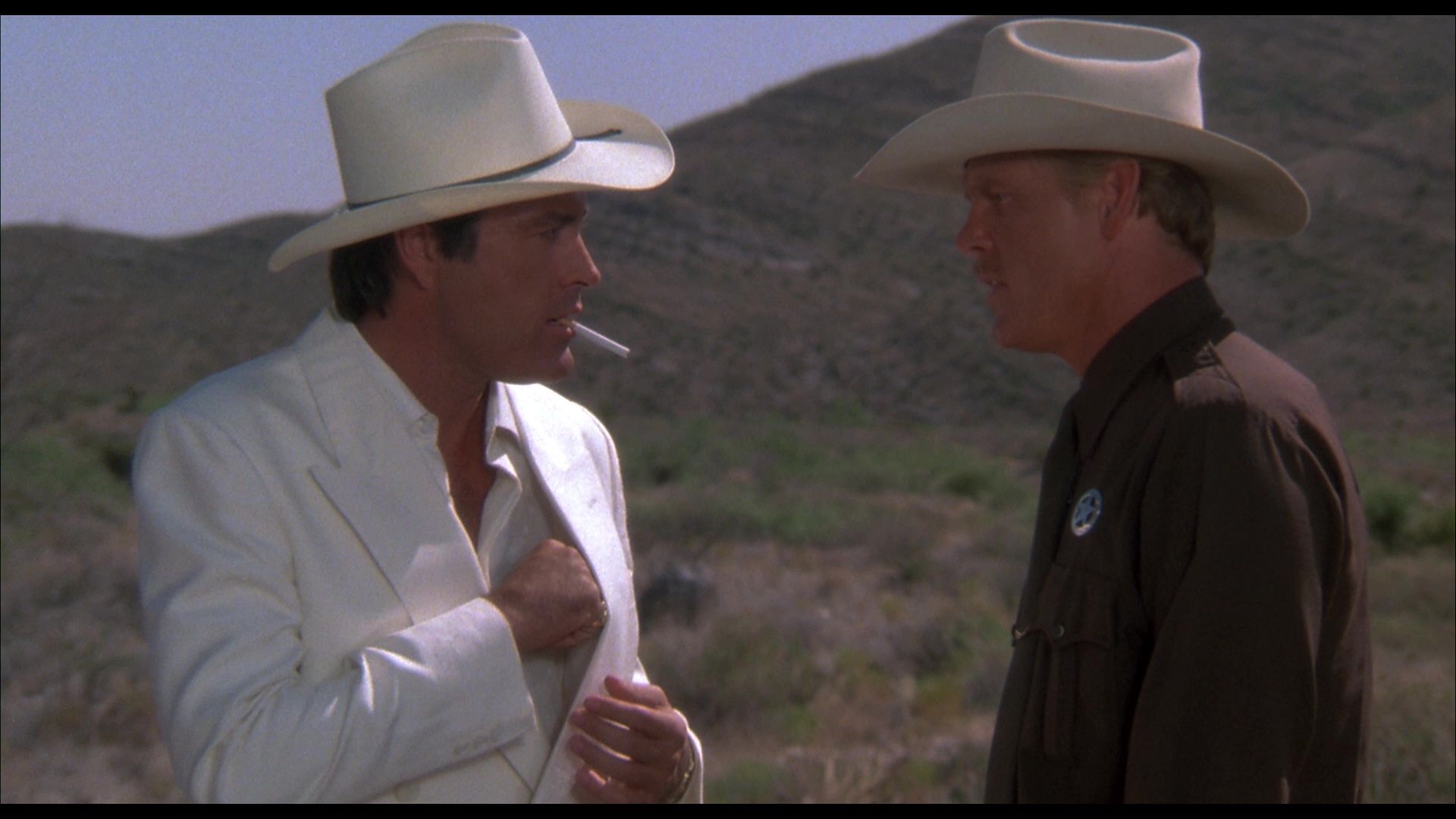
Speaking of which: Extreme Prejudice. Hill’s dusty 1987 crime drama – starring Nick Nolte as a Texas Ranger tasked with taking down a childhood pal (Powers Boothe) who’s now a Mexican druglord – is very much a Western, giving Nolte the chance to properly play the cowboy lawman he’d channeled in Hill’s unexpected blockbuster 48 HRS five years earlier. Underrated at the time, and subsequently overwritten in pop culture by the arrival of Robert Towne’s curiously similar Tequila Sunrisea year later, it holds up very well indeed, with Nolte and Boothe’s solid work supported by pitch-perfect character turns from Rip Torn, Michael Ironside, Clancy Brown and William Forsythe. Maria Conchita Alonso is there too, doing her best to register in a fairly thankless role.
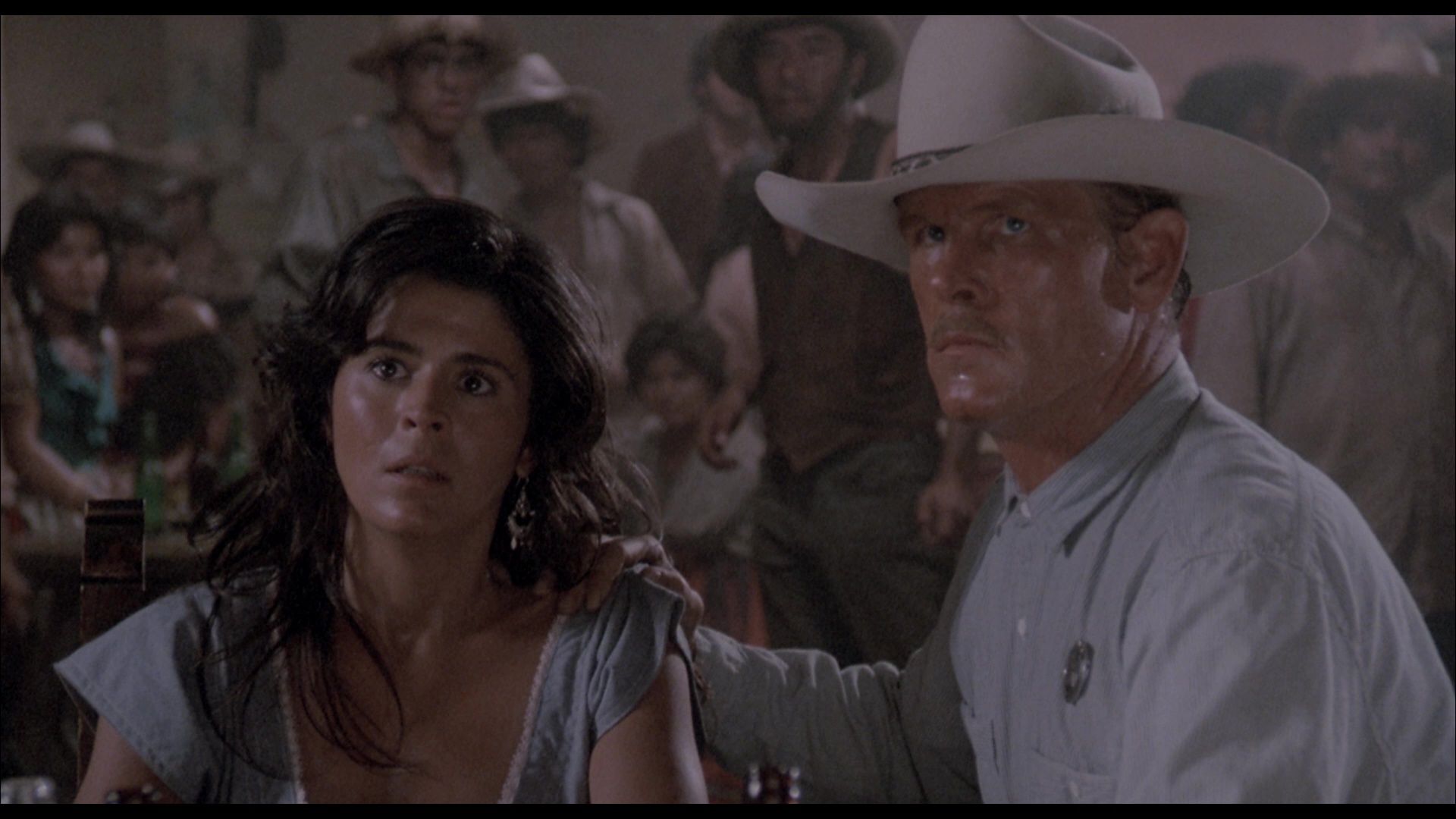
All the extras from Lionsgate’s Vestron-branded release are here – interviews with Ironside, Brown and cinematographer Matthew Leonetti, an audio commentary by C. Courtney Joyner and Henry Parke, isolated selections from Jerry Goldsmith’s score with commentary by music historian John Takis, an hour-long interview with Hill recorded for the 2019 StudioCanal Blu-ray release and a 2010 interview – produced for one of the European DVDs, I think? – that runs nearly as long.
But wait, there’s more! Via Vision has commissioned two new commentary tracks for this title: One from critics Daniel Kremer and Nat Segaloff, and a second from Film Freak Central critic (and social-media buddy) Walter Chaw, whose excellent critical study A Walter Hill Film was published earlier this year and feels like the definitive text on the man. It’s as thoughtful and insightful as I’d hoped it would be.
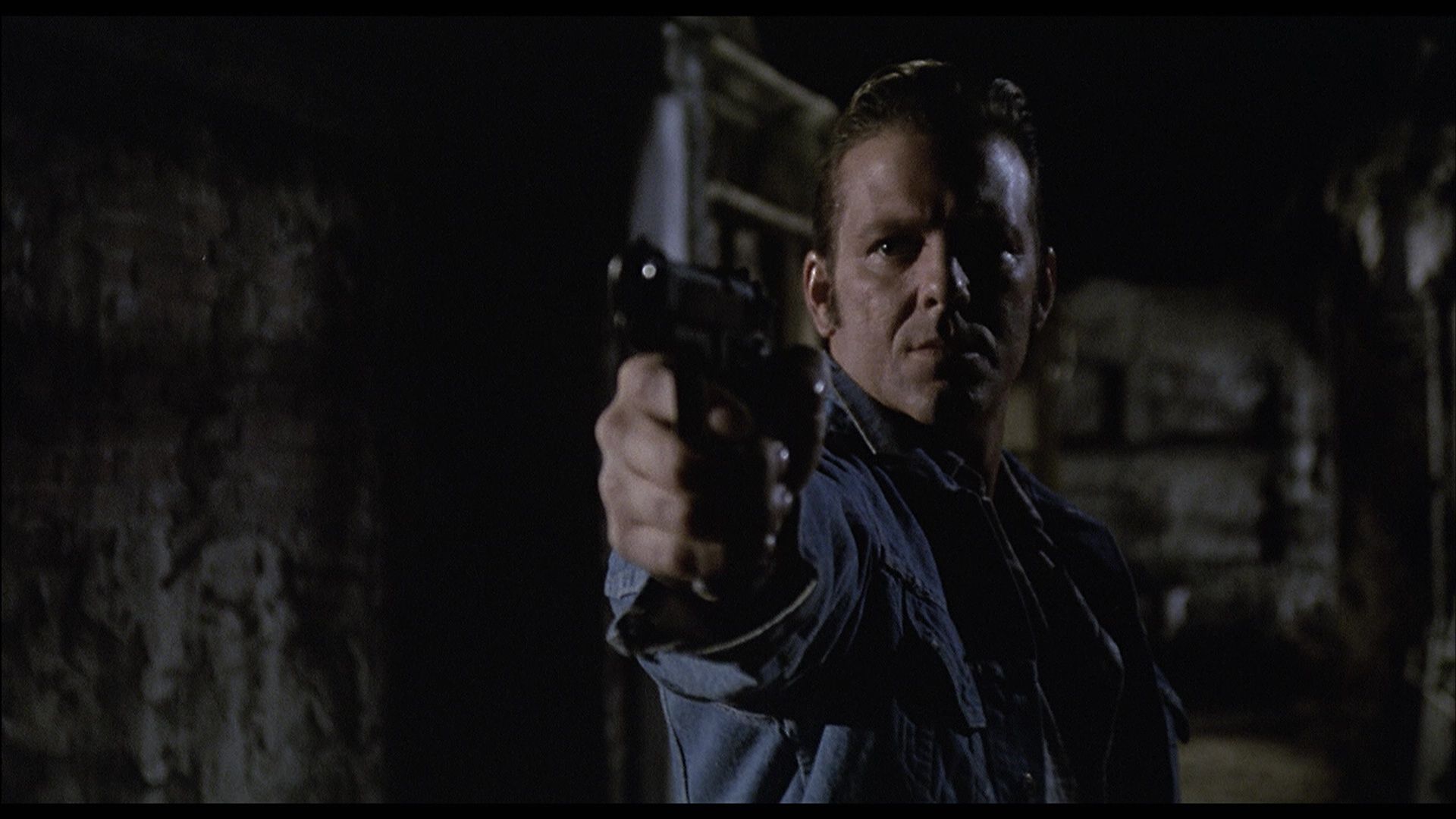
Walter also contributes a new commentary for Johnny Handsome, the last theatrical feature in the Imprint set – and one that comes with an asterisk, as its transfer has a glitch in the final scene that drops about 15 seconds of footage – Elizabeth McGovern's last reaction shot, basically – but leaves the end-credits audio out of sync as a result. I’m sure Via Vision will correct the mistake in future pressings and hopefully provide corrected discs as soon as possible, but it’s an unfortunate stumble that blunts the final note of one of Hill’s best movies – a neo-noir revenge picture that owns its sleaziness and positively revels in it, with Rourke playing a protagonist who’s as unredeemable as the people he’s hunting down and Lance Henriksen and Ellen Barkin having the absolute best time playing the worst people in the world. Morgan Freeman’s also having a blast playing against type as a moral scold with no real morals of his own; and right after Driving Miss Daisy, no less.
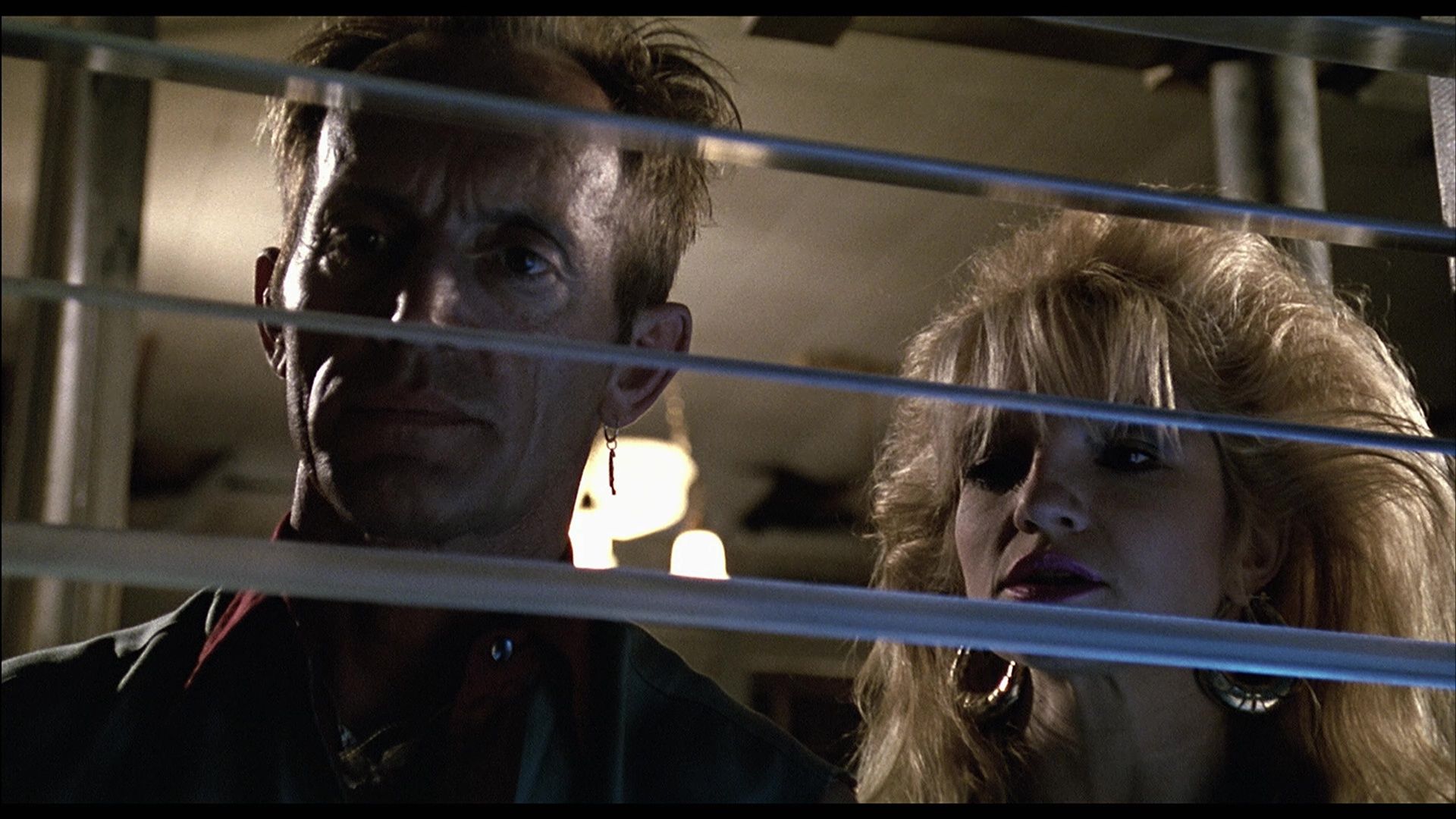
In addition to Walter’s track, Imprint’s release adds a second commentary from video essayists Kremer and Scout Tafoya and a lengthy new interview with Hill, along with the interviews with screenwriter Ken Friedman, makeup artist Michael Westmore and stunt performer Allan Graf produced for Lionsgate’s 2010 release. All good stuff, really.
Finally, there’s Broken Trail, a two-part adaptation of Alan Geoffrion’s novel starring Robert Duvall and Thomas Haden Church as a rancher and his nephew who rescue five young women destined for sex slavery and flee a posse of scumbags bent on running them all down. As I mentioned earlier, I had no idea this thing even existed but I was delighted to find it deeper and more textured than I would have expected for a miniseries project from 2006, when everybody was cranking out such things with an eye on DVD sales. (Those were the days, huh.)
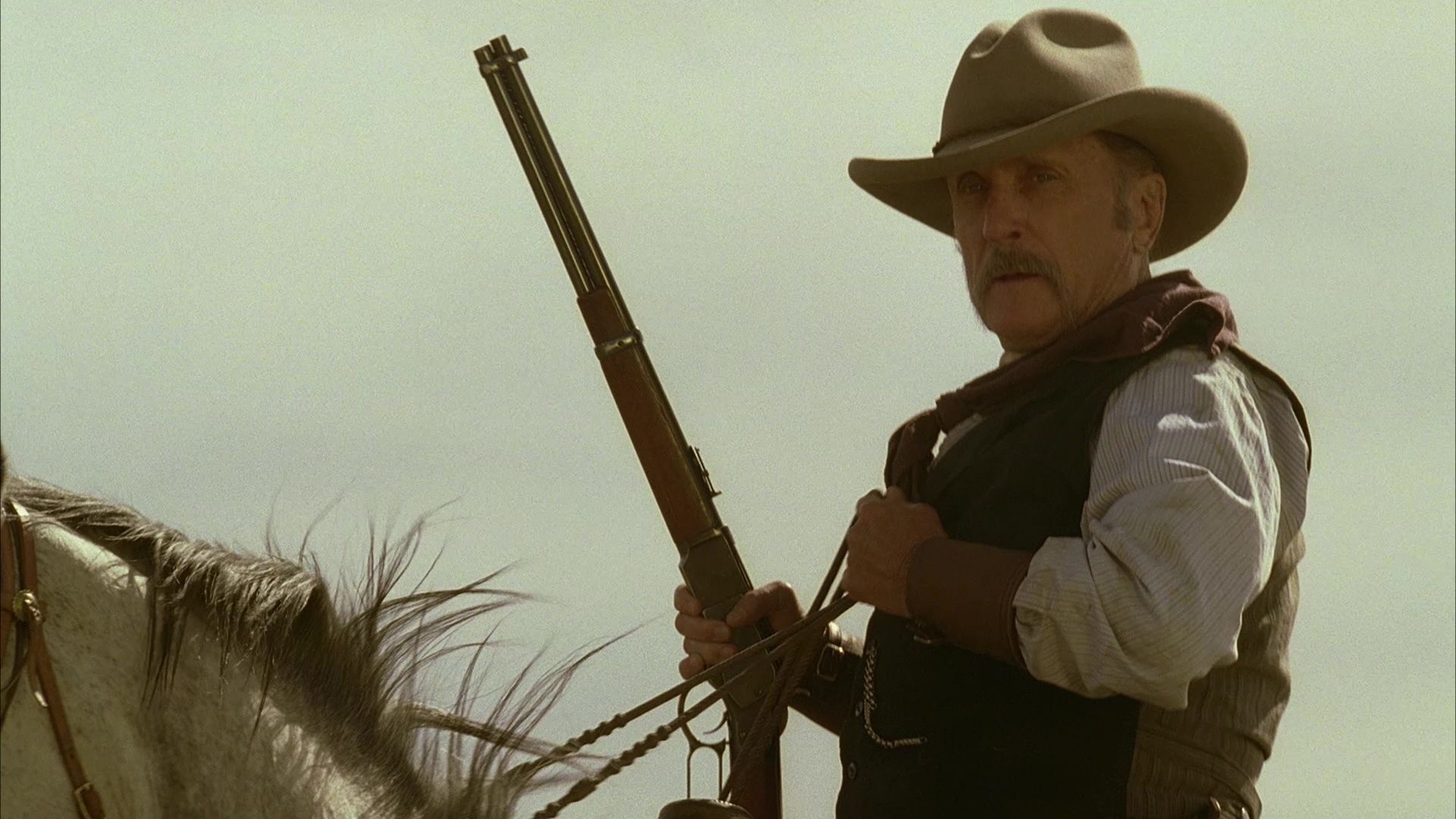
But yes, Broken Trail is solid work from professionals who know exactly what they’re doing: Hill’s attention to character detail gives the storytelling a watchful quality, and an appreciation for people doing their best to survive a vast, hostile environment - and choosing to help rather than harm one another –that plays really well two decades later. The production won four Emmys, including acting prizes for Duvall and Church and Best Miniseries, and Hill won a DGA award for his work. And though Lonesome Dove casts a very long shadow over every other “Robert Duvall plays an aging cowhand” project, the man really is the best at what he does and it’s always a pleasure to watch him do it.
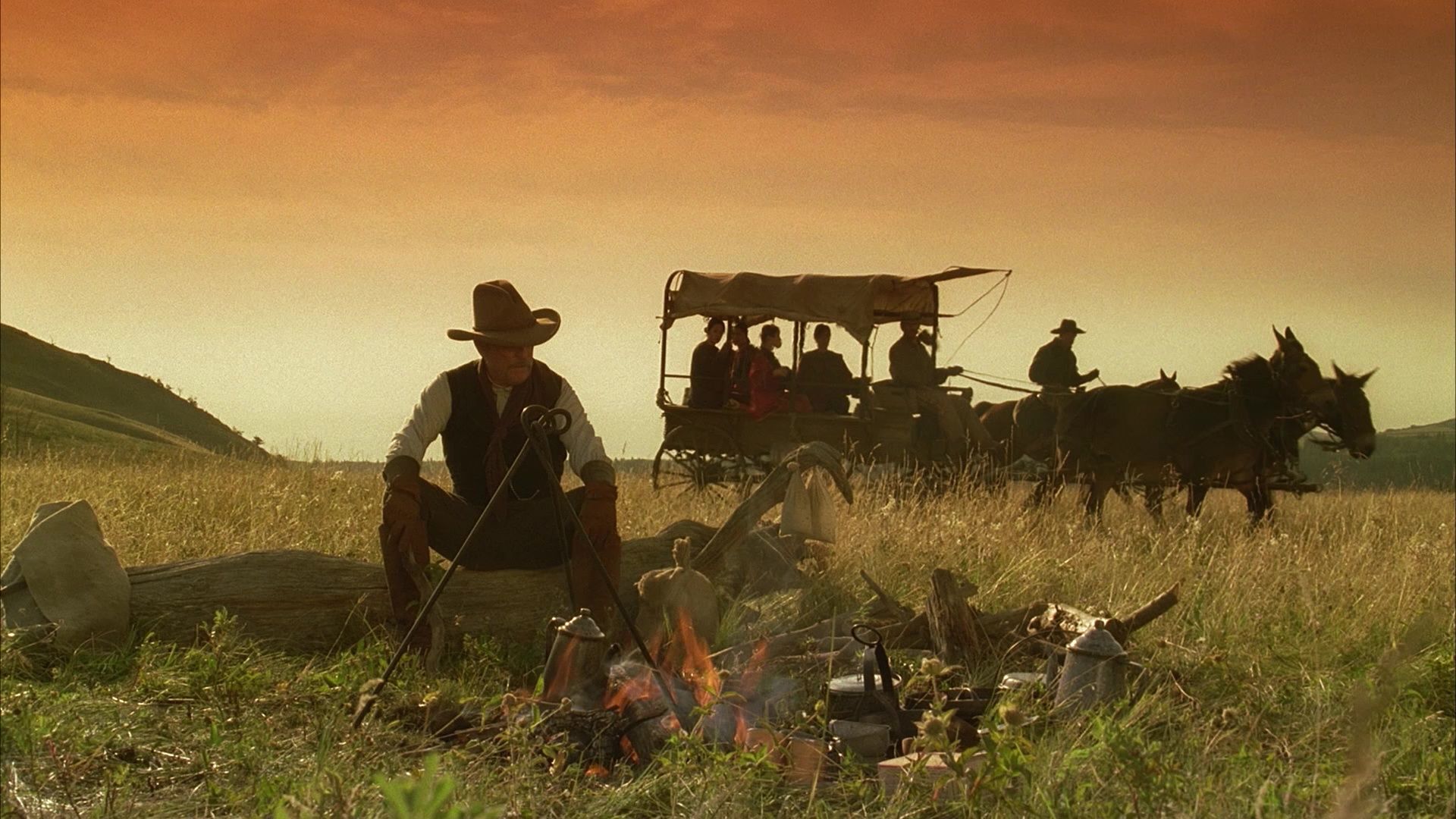
It also helps that the miniseries was AMC’s first original movie production, and the cable giant was looking to do something prestigious – so Lloyd Ahearn’s cinematography has a grand sweep to it, making the most of the Alberta locations, and the general level of quality is higher than it might otherwise have been. (The sole extra on the disc, a production featurette titled “The Making of a Western Classic”, makes darn sure we appreciate that.)
And that, at long last, is Directed by Walter Hill. Although I now have to add “Volume 1” to that, as I’ve heard Via Vision has a second set underway. No idea what’ll be in that one – 4K editions of The Warriors and Red Heat? Long-overdue remasters of Geronimo: An American Legend and Wild Bill? Some deranged attempt to reconsider Bullet to the Head? – but I’m here for it. And hopefully the other Walter will do commentaries for all of the titles, rather than just a couple.
Fun fact: This was going to be one for the paid tier but I thought you'd all want to see the sort of ridiculous in-depth stuff I do over there. Upgrade that subscription so you don't miss out!
And coming soon: Past Lives and What’s Love Got to Do With It offer very different takes on cultural displacement, and there’s this cartoon about a teenage kraken.
